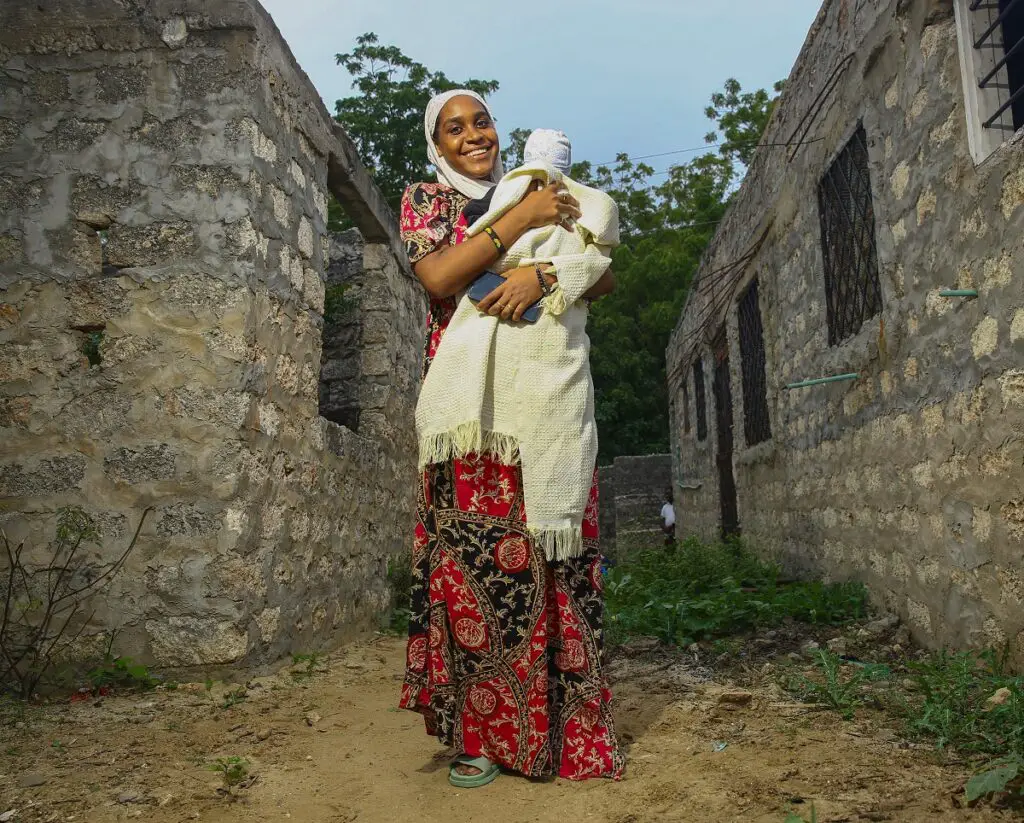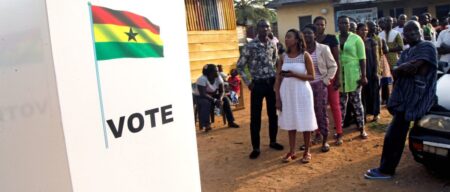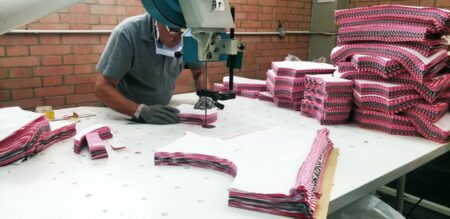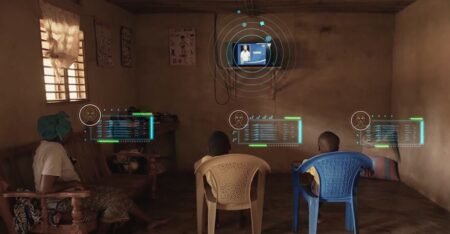- M-mama is an emergency referral and transport system for pregnant women and newborns in Malawi, Tanzania, Lesotho, and Kenya.
- The system has saved over 1,170 lives and decreased maternal and newborn deaths in Tanzania.
- The m-mama app operates on a simple online or offline tablet. It enables dispatchers to organise care in health centres ahead of time.
The Vodafone Foundation has set aside $6 million to extend the successful m-mama maternal health initiative to Malawi over the next five years. This expansion aims to enhance maternal and newborn healthcare access in Malawi and the region.
Malawi has one of the highest maternal mortality rates in the world. Estimates show that the country currently records 5.7 maternal deaths per 1,000 live births.
Further, adolescent pregnancies account for 25 percent of all births and 20 per cent of maternal mortality. Neonatal death is predicted to be 29 per 1,000 live births. Birth asphyxia, premature birth, and infection are the most common causes of death.
Additionally, under-five mortality is estimated to be 84 per 1,000 live births. Data shows malaria, diarrhea, and pneumonia are the country’s most common causes of death.
M-Mama initiative’s impact and expansion
The m-mama initiative, developed in partnership with the United States Agency for International Development (USAID) in 2013, has already achieved nationwide scale in Tanzania and Lesotho.
It is currently in the process of deployment in Kenya. The goal is to make this life-saving initiative accessible to pregnant women and newborns in rural areas by providing timely transportation to quality healthcare facilities.
Vodafone Foundation’s financial commitment is part of a larger $12 million seed funding package from donors and various stakeholders to establish m-mama throughout Malawi.
This project will involve clinical mapping of health facility capabilities. It also encompasses recruiting community drivers, who can transport expectant mothers and newborns when ambulances are not readily available.
Once operational, the m-mama system can be sustained by the Government of Malawi for approximately $350,000 per year. This is significantly cheaper than introducing two new ambulances into the healthcare system.
“Today’s announcement builds on Vodafone Foundation’s long-term, US$30 million commitment to expand m-mama within Sub-Saharan Africa, helping to save the lives of thousands of women through an emergency service that governments can afford to sustain,” said Joakim Reiter, Chief External & Corporate Affairs Officer for Vodafone Group and a Vodafone Foundation Trustee.
This approach aligns with Vodafone Foundation’s long-term commitment to expanding m-mama across sub-Saharan Africa, focusing on proven solutions to reduce maternal and newborn mortality.
Reducing maternal mortality in Sub-Saharan Africa
Sub-Saharan Africa faces a significant challenge in maternal healthcare. Estimates show that 70 per cent of the world’s maternal deaths occur in this region.
The m-mama service addresses a critical issue by offering a toll-free number and a 24/7 dispatch center. It connects women facing pregnancy complications or newborn-related issues with an ambulance or community drivers—local volunteers who offer their assistance.
M-mama initiative has already substantially impacted by transporting over 35,000 women and newborns, potentially saving 1,170 lives.
In Tanzania, it has contributed to a 38 per cent reduction in maternal deaths and lowered newborn mortality by over 40 per cent.
Expansion in Tanzania, Lesotho and Kenya
Tanzania, where m-mama launched in 2013, now has nationwide coverage. The Government of Tanzania is committed to covering all transport costs and providing dispatch staff.
In response to President Samia Suluhu Hassan’s request, the Vodafone Foundation, the Government of Tanzania, and USAID committed to expanding m-mama over the entire country in April 2022.
The Vodafone Foundation and USAID pledged $15 million for the Tanzania expansion ($10 million from the Vodafone Foundation and $5 million from USAID), with the Tanzanian government agreeing to cover all transportation costs and provide all dispatch employees.
As of September 2023, the m-mama system covers all of Tanzania and Zanzibar at a cost of under $2 million per year to the Tanzanian government while providing 54,000 emergency transportation.
Lesotho, where m-mama expanded in 2019, has similarly embraced the initiative. It has established a national dispatch center to cover all ten districts. Lesotho government is committed to providing staff and 100 per cent of ongoing costs.
This approach is expected to reduce maternal and newborn deaths in the country significantly. Lesotho has one of the worst rates of maternal mortality in the world. Data shows roughly 487 deaths per 100,000 live births, or 272 women, die yearly during pregnancy or childbirth in Lesotho.
The latest announcement involves the introduction of m-mama in Kenya, with an $18 million investment from the Vodafone Foundation, USAID, Safaricom, M-Pesa Foundation, and other partners.
The co-funded partnership with the Kenyan Government aims to launch in early 2024, targeting 100 percent coverage for women needing the service.
Also Read: UK Deploys $18.86M to Train Healthcare Workers in Kenya, Nigeria, and Ghana.
How M-Mama Works
M-mama addresses the absence of a national ambulance service in many sub-Saharan African countries. Women facing pregnancy complications or newborn health issues can make a free call to a 24/7 dispatch center.
Trained health workers assess their condition, and if necessary, the m-mama app, equipped with information on ambulances, drivers, health facilities, and clinical decision-making, connects them to the nearest available transportation.
The app streamlines the referral process, ensuring timely access to treatment and care. It operates on a simple tablet, online or offline, allowing dispatchers to find transport and prepare for the patient’s arrival. Drivers get their pay electronically through M-Pesa, ensuring a hassle-free experience for the beneficiaries.
In its design, M-mama is affordable and scalable within local health budgets. Vodafone Foundation and its partners take up initial setup costs as governments cover ongoing expenses, including dispatch staff, transport, IT, and driver training.
Commitment to maternal health
Vodafone Foundation and Vodafone Group remain committed to improving maternal health through their initiatives in sub-Saharan Africa.
Their investments have positively impacted over a million women, girls, and babies. The entities have offered essential treatment, transport, medical care, and health education since 2010. They have used over $24 million (€20.3 million) in philanthropic investments.











